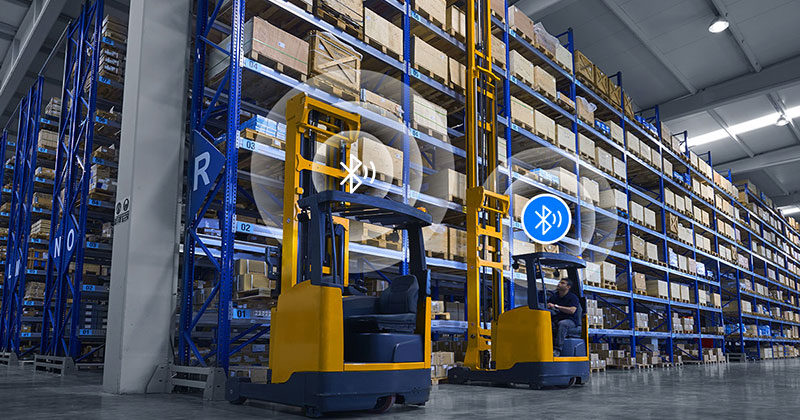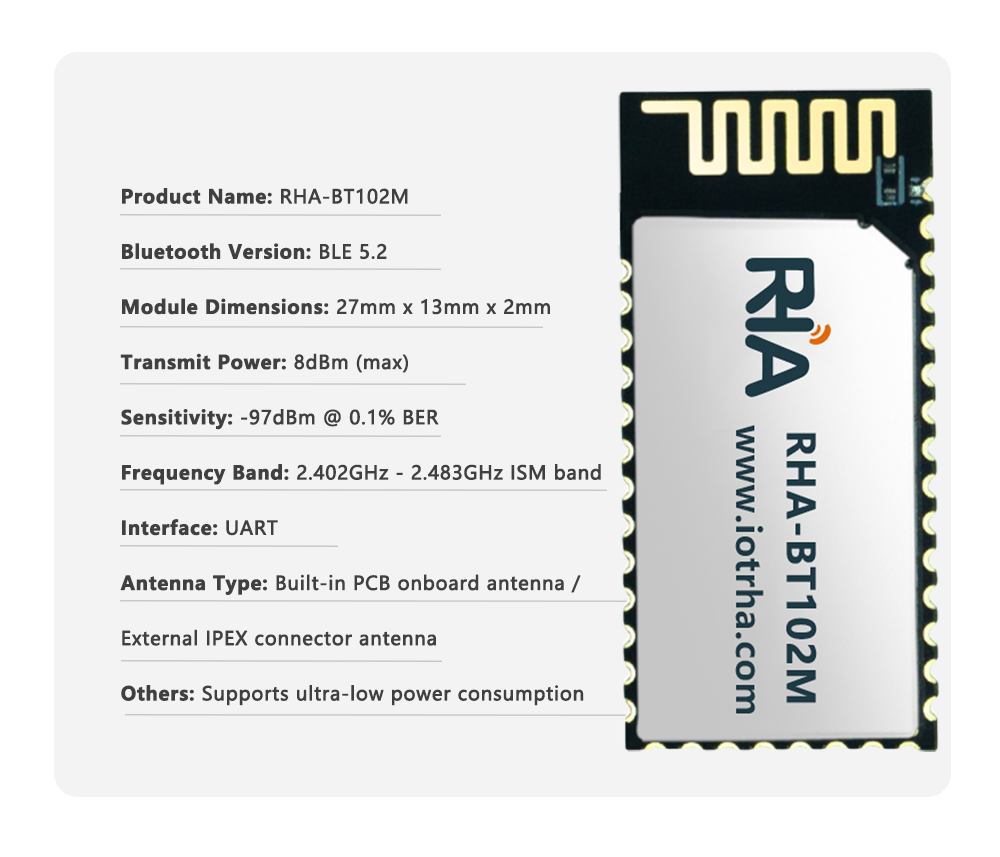As industrial automation accelerates, wireless communication technologies have become integral to advancing efficiency and connectivity. Bluetooth modules, especially low-power variants, have emerged as a key wireless communication method in the industrial automation landscape. This article explores the diverse applications, advantages, and future potential of Bluetooth modules in achieving smart factories and advancing Industry 4.0.

1. Equipment Monitoring and Data Collection
In modern industrial systems, real-time monitoring of operational equipment is essential for maintaining optimal productivity and quality. Bluetooth modules can be seamlessly integrated into industrial machines to transmit critical operational data—such as temperature, humidity, or vibration—in real-time. This data can be rapidly sent to central control units or mobile devices via Bluetooth networks, enabling operators to monitor performance, identify inefficiencies, and address potential problems instantly.
2. Wireless Sensor Networks (WSN)
In industrial environments, Bluetooth modules play a pivotal role in creating Wireless Sensor Networks (WSN). These networks collect and relay environmental data, such as gas concentration, pressure, and liquid levels. Especially in hazardous or inaccessible areas, WSNs enabled by Bluetooth reduce the need for extensive wiring, thereby lowering maintenance costs and increasing flexibility in data transfer.
3. Communication Between Industrial Robots
In the era of smart manufacturing, industrial robots are crucial for flexible and autonomous production lines. Bluetooth modules enable wireless communication among robots, facilitating coordinated operations and real-time feedback to control systems. This enhances the responsiveness and adaptability of production lines, aligning with Industry 4.0’s demand for more flexible manufacturing solutions.
4. Remote Control and Maintenance of Industrial Equipment
Technicians can leverage Bluetooth modules for remote control and maintenance of industrial systems. Using Bluetooth-enabled mobile devices, factory personnel can diagnose and control machines from a distance, significantly reducing downtime. Bluetooth modules also support remote firmware updates, further streamlining equipment maintenance and lifecycle management.
1.Low Power Consumption for Energy-Efficient Industrial Operations: Bluetooth Low Energy (BLE) technology minimizes power usage while maintaining stable data transmission, making it ideal for industrial equipment that operates continuously.
2.Enhanced Data Security in Industrial Networks: Bluetooth offers robust security protocols, including encryption, device authentication, and pairing, ensuring secure data transmission within industrial automation environments, safeguarding against unauthorized access and data breaches.
3.Seamless Compatibility with Modern Industrial Systems: Bluetooth modules are compatible with a broad range of smart devices and sensors, making them easily integrable into existing industrial systems and enhancing their scalability.
4.Cost-Effective Wireless Communication Solutions: Bluetooth modules offer a cost-effective alternative to other wireless communication technologies, as they do not require significant infrastructure investments. For companies looking to transition to automated processes, Bluetooth is a budget-friendly option.
As Industry 4.0 continues to advance, the role of Bluetooth modules in industrial automation is expected to grow. Future developments in Bluetooth technology will enhance transmission speed, range, and reliability, allowing for even more widespread application in industrial environments.
Additionally, the convergence of Bluetooth with emerging technologies such as the Internet of Things (IoT), artificial intelligence (AI), and big data will unlock new possibilities, fostering greater innovation in smart manufacturing systems.
These advancements will help industries optimize their production processes, reduce costs, and increase automation, making Bluetooth a critical component in the ongoing evolution of industrial automation.

Low-power Bluetooth modules, like the RHA-BT102M developed by RHA Technology, are proving to be essential in the drive toward Industry 4.0.
With advantages such as energy efficiency, enhanced security, broad compatibility, and cost-effectiveness, Bluetooth modules are becoming indispensable for smart factory applications.
As Bluetooth technology evolves and integrates with other cutting-edge innovations, it will play an even more significant role in shaping the future of industrial automation.
